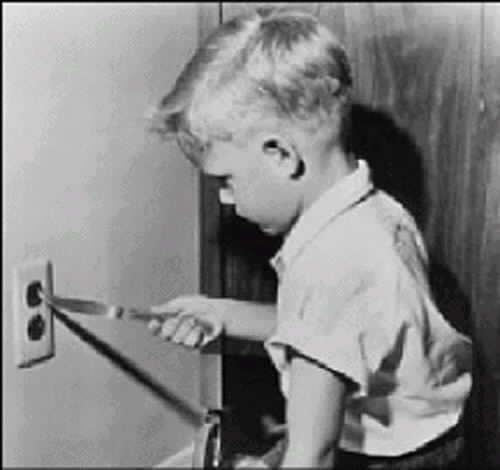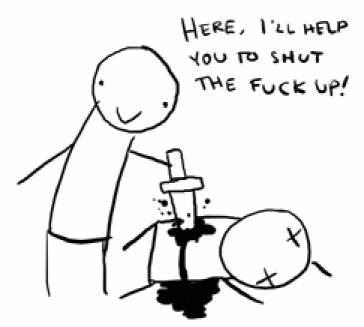Post by ravenna on Feb 27, 2022 13:25:50 GMT
Germany to send Ukraine weapons in historic shift on military aid
Until Saturday, Germany had a longstanding practice of blocking lethal weapons from being sent to conflict zones.
Germany on Saturday reversed a historic policy of never sending weapons to conflict zones, saying the Russian invasion of Ukraine was an epochal moment that imperiled the entire post-World War II order across Europe.
The decision was an abrupt change in course, coming after Berlin clung to its initial position for weeks despite the rising Russian menace and pressure from EU and NATO allies.
On Saturday, Berlin finally bowed to that pressure, and to the reality that Russia is encircling Ukrainian cities and threatening to topple the government in Kyiv.
The decision was an abrupt change in course, coming after Berlin clung to its initial position for weeks despite the rising Russian menace and pressure from EU and NATO allies.
On Saturday, Berlin finally bowed to that pressure, and to the reality that Russia is encircling Ukrainian cities and threatening to topple the government in Kyiv.
From its own stockpile, the German government will send 1,000 anti-tank weapons and 500 Stinger anti-aircraft defense systems to Ukraine. The government has also authorized the Netherlands to send Ukraine 400 rocket-propelled grenade launchers and told Estonia it ship over send nine howitzers.
“The Russian invasion of Ukraine marks a turning point,” German Chancellor Olaf Scholz said in a statement. “It threatens our entire post-war order. In this situation, it is our duty to do our utmost to support Ukraine in defending itself against Vladimir Putin’s invading army. Germany stands closely by Ukraine’s side.”
A government spokesperson said the weapons will be delivered “as soon as possible.”
Until Saturday, Germany had stuck to its longstanding practice of not permitting lethal weapons that it controlled to be transferred into a conflict zone.
That stance bewildered some European officials, even more so after Russian President Vladimir Putin ordered a full-scale invasion and launched missile strikes on Kyiv, the Ukrainian capital.
Germany’s shift comes as numerous Western allies are mobilizing to send Ukraine more guns, ammunition and even anti-aircraft defense systems as Russian forces bear down on major Ukrainian cities.
“The Russian invasion of Ukraine marks a turning point,” German Chancellor Olaf Scholz said in a statement. “It threatens our entire post-war order. In this situation, it is our duty to do our utmost to support Ukraine in defending itself against Vladimir Putin’s invading army. Germany stands closely by Ukraine’s side.”
A government spokesperson said the weapons will be delivered “as soon as possible.”
Until Saturday, Germany had stuck to its longstanding practice of not permitting lethal weapons that it controlled to be transferred into a conflict zone.
That stance bewildered some European officials, even more so after Russian President Vladimir Putin ordered a full-scale invasion and launched missile strikes on Kyiv, the Ukrainian capital.
Germany’s shift comes as numerous Western allies are mobilizing to send Ukraine more guns, ammunition and even anti-aircraft defense systems as Russian forces bear down on major Ukrainian cities.
The reversal could mean a rapid increase in European military assistance for Ukraine, as large portions of the Continent’s weapons and ammunition are at least in part German-manufactured, giving Berlin legal control over their transfer. Yet Berlin’s changing stance does not necessarily mean all requests for arms shipments will be approved, as each case is decided individually.
Before Saturday’s turnaround, senior Ukrainian officials had been complaining bitterly for weeks about Germany’s refusal to allow arms shipments to bolster Ukraine’s defenses.
Estonia, in particular, had said it wanted to send old howitzers but was prevented from doing so because Germany was withholding its approval. Estonia bought the weapons from Finland, which gave its sign-off, but Germany also has to OK the transfer because it originally sold the howitzers to Finland.
At the time, Ukrainian and some officials from EU countries expressed outrage. And in response, Germany said it was sending 5,000 helmets and a field hospital to Ukraine, a meager contribution that has been the subject of some derision considering that Germany is the biggest and wealthiest EU country.
Before Saturday’s turnaround, senior Ukrainian officials had been complaining bitterly for weeks about Germany’s refusal to allow arms shipments to bolster Ukraine’s defenses.
Estonia, in particular, had said it wanted to send old howitzers but was prevented from doing so because Germany was withholding its approval. Estonia bought the weapons from Finland, which gave its sign-off, but Germany also has to OK the transfer because it originally sold the howitzers to Finland.
At the time, Ukrainian and some officials from EU countries expressed outrage. And in response, Germany said it was sending 5,000 helmets and a field hospital to Ukraine, a meager contribution that has been the subject of some derision considering that Germany is the biggest and wealthiest EU country.










